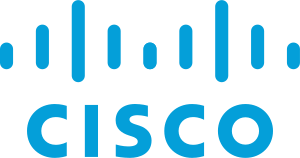Classroom Based CCNA Training
CompTIA N+ & CCNA = £1100 (was £1350), CCNA & CCNP=£2350
Impact IT Training
Summary
- By Bank Transfer
- By Bank or Credit Card
- Tutor is available to students
Add to basket or enquire
Overview
Impact IT Training has proven record of providing best Instructor-Led Classroom based Training. This completely hands on training will give you skills that you are looking for. We provide 100% pass guarantee or we will train you until you pass. Our 90% student pass in their 1st attempt.
Why Should you do Training with US
- Instructor-Led Classroom based Training
- Hands On training
- Guaranteed best price
- Highly qualified, experience and well reputed Instructors
- Course material, Lab manual, Mock test
- In-House Cisco Exam facility
- Small class size (means more attention of instructor)
- Interest Free Finance option
- Excellent reviews of our past student.
Certification
Cisco Certified Network Associate Routing and Switching (CCNA Routing and Switching) CCNA 200-301
Description
Course Overview
- The course consists of 5 days of classroom-based training during week days or weekends , including hands-on learning experience with Cisco networking products.
Following topic will be covered in this course:
Module 1:Network Fundamentals
- Explain Role and Function of Components of Network
- Describe Various Characteristics of Network topology architecture
- Physical interface Vs Cabling types
- Identify issues of cables and interfaces
- IP Addressing and Subnetting
- IPv6 Addressing types
- Describe Wireless Principles
- Describe Fundamentals of Virtualization
- Describe Concepts of Switching
Modul 2: Network Access
- Configure and verify
- VLANs
- Interswitch Connectivity
- Layer 2 Discovery protocols such as CDP and LLDP
- Layer2 and Layer3 EtherChannel (LACP)
- Wireless LAN Components to connect clients using GUI only such as, security settings, building Wireless LAN, advanced Wireless LAN settings, and Quality of Service(QoS) profiles
- Describe
- The purpose and basic Rapid PVST+ operations
- Physical infrastructure connections of WLAN components like AP, WLC, access/trunk ports, and LAG
- Describe Access Point and Wireless LAN Controller management using http, https, Telnet, SSH and console)
Module 3: IP Connectivity
- Understand different components of routing table
- Understand default method of router of making a forwarding decision
- Configure and verify IPv4 and IPv6 static routing
- Configure and verify single area OSPFv2
- Explain why First Hop Redundancy Protocol (FHRP) is used
Module 4: IP Services
Configure and verify
- NAT using static and pools
- Network Time Protocol operating in a client and server mode
- Remote access using SSH for devices
- DHCP client and DHCP Relay
Explain
- DHCP and DNS role in the network
- SNMP function in network operations
- Per Hop Behaviour (PHB) forwarding for QoS, which includes shaping, congestion, policing, queuing, marking, congestion and classification
Describe
- The features of syslog including facilities and levels
- TFTP/FTP capabilities and function in the network
Module 5: Security Fundamentals
Configure and Verify
- Device access control using passwords created on Local device
- Access Control List (ACLs)
- Layer 2 security elements (DHCP snooping, Port Security, Dynamic ARP inspection)
- WLAN using WPA2 PSK using the GUI
Describe
- Security program aspects (user awareness, Physical access control, and Training)
- Elements of Security password policies elements, such as complexity, management, and password alternatives (biometrics, certificates, and multifactor authentication)
- Site-to-Site and Remote access VPNs
- Wireless security protocols such as WPA, WPA2, and WPA3
- Define essential security concepts (Vulnerabilities, threat, exploits, and Countermeasures)
- Distinguish Authentication, Authorization, and Accounting (AAA) concepts
Module 6: Automation and programmability
- Explain how automation affects network management
- Compare controller-based networking with traditional networks
- Describe controller-based and software defined architectures (overlay, underlay, and fabric)
- Separation of control plane and data plane
- North-bound and south-bound APIs
- Compare traditional campus device management with Cisco DNA Center enabled device management
- Describe characteristics of REST-based APIs (CRUD, HTTP verbs, and data encoding)
- Recognize the capabilities of configuration management mechanisms Puppet, Chef, and Ansible
- Interpret JSON encoded data
Who is this course for?
CCNA course is for those who want to make career in IT and Networking or already working as network engineer and want to validate their skills by security Cisco CCNA certificate
Requirements
There is no formal requirement of this course as it starts from beginner level. But having fundamental knowledge of Network and computing is recommended. We highly recommend CompTIA Network+ course before doing CCNA.
Career path
After this students will be able to apply following jobs:
- Network Engineer
- Network Analyst
- Network Support Engineer
Questions and answers
Reviews
Currently there are no reviews for this course. Be the first to leave a review.
Legal information
This course is advertised on reed.co.uk by the Course Provider, whose terms and conditions apply. Purchases are made directly from the Course Provider, and as such, content and materials are supplied by the Course Provider directly. Reed is acting as agent and not reseller in relation to this course. Reed's only responsibility is to facilitate your payment for the course. It is your responsibility to review and agree to the Course Provider's terms and conditions and satisfy yourself as to the suitability of the course you intend to purchase. Reed will not have any responsibility for the content of the course and/or associated materials.


